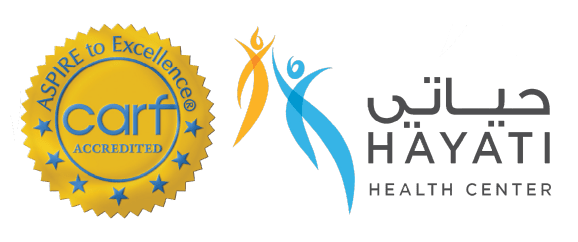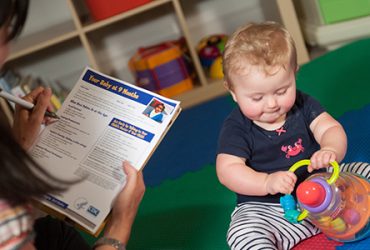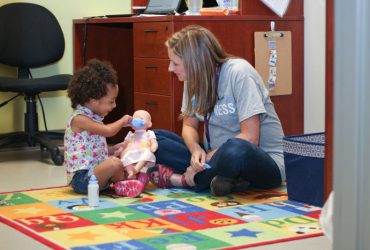The Beginning is a Great Place to Start
Early intervention is a support and educational system for very young children who have developmental delays or disabilities. It provides huge benefits to children during their crucial early years of development.

Cognitive Intervention:
Early speech and language development is predictive of later capabilities, including academic achievement in school and later employment opportunities.
Behavioral Intervention:
Difficulties identified in early childhood are predictive of a variety of problems as children grow older such as antisocial activities, mental health issues and even substance misuse
Our Approach ?
All Hayati staff members are trained in Early Intervention as we are often the first people to notice that an intervention is necessary. They can also monitor a child’s progress and notify parents or other professionals if there are noteworthy changes or concerns. We all work together with parents to give children their best opportunity for success as they grow older and enter the school system. We also have individualized, early intervention programs to prepare children for school.
FAQ'S
Early Intervention programs employ professional, degreed therapists who are expert at helping a child reach their full potential. Early intervention services are important to improving a child’s development, both in how they directly impact the child and how they benefit the family by strengthening and empowering a nurturing environment.
All children develop at different rates, and not meeting developmental milestones at the same time as other kids of the same age is not always a reason to worry. For example, some babies start walking as early as 9 months, while others may not take their first steps for more than a year. Sometimes children who may appear to be lagging catch up on their own, but a child with a developmental delay will need therapeutic intervention to reach their best potential. It is important to identify delays in motor-, cognitive-, social- and language development and seek the necessary intervention.
An initial screening is a brief, informal checklist regarding your child and your concerns. This helps to determine whether a more extensive evaluation or assessment is needed. An assessment is the process of gathering information (on medical and developmental history), using clinical observations, conducting formal/standardized test, obtaining collateral information (parent, teacher, medical records), etc. to determine your child’s strengths and areas he/she might need assistance or therapy for.
Parents and caregivers play an important role in the assessment process. Preparing the following information prior to an assessment is essential.
• Be ready to share important information such as medical records or other evaluations.
• Think about any questions or concerns related to the development of the child.
• Think about which family members or child care providers might have valuable information.
• Be prepared to inform the service coordinator of any needed assistance, such as an interpreter.
• Think about any questions or concerns related to the development of the child.
• Think about which family members or child care providers might have valuable information.
• Be prepared to inform the service coordinator of any needed assistance, such as an interpreter.
Birth to Age 3:
Infants and Toddlers who have a 25 percent delay in one or more areas of development OR if a specialist diagnosed a delay (called informed clinical opinion) OR if a child suffers from a known physical or mental condition that has a high probability for developmental delays (such as Down syndrome, ASD, cerebral palsy)
Age 3 to Age 6:
Toddlers and children who have:
• A 25 percent delay in one or more areas of development
OR
• Any of the following physical or mental disabilities:
autism; developmental delays; serious emotional disturbance; neurological impairment; deafness/hearing loss; specific learning disability; intellectual disability; multiple disabilities; other health impairment; physical disability; speech impairment or blindness/visual impairment; ADHD/ADDD AND
• require special education services.
Infants and Toddlers who have a 25 percent delay in one or more areas of development OR if a specialist diagnosed a delay (called informed clinical opinion) OR if a child suffers from a known physical or mental condition that has a high probability for developmental delays (such as Down syndrome, ASD, cerebral palsy)
Age 3 to Age 6:
Toddlers and children who have:
• A 25 percent delay in one or more areas of development
OR
• Any of the following physical or mental disabilities:
autism; developmental delays; serious emotional disturbance; neurological impairment; deafness/hearing loss; specific learning disability; intellectual disability; multiple disabilities; other health impairment; physical disability; speech impairment or blindness/visual impairment; ADHD/ADDD AND
• require special education services.






